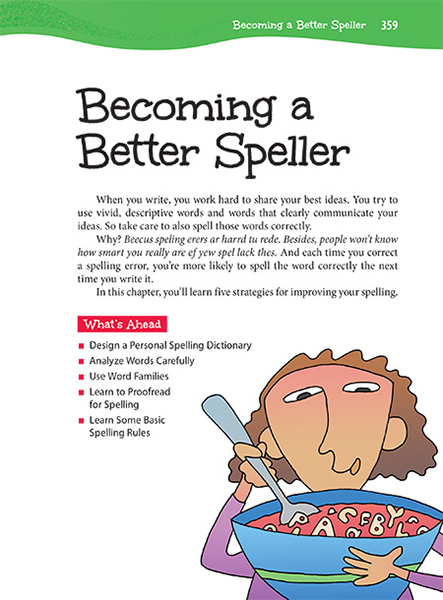Page 359 from

Start-Up Activity
Share a word or two that you have trouble spelling. Explain what part of the word trips you up. Then ask for volunteers to share a word they find difficult to spell.
On the board, list all the words your class comes up with. Refer to this word list as you learn different spelling strategies throughout the chapter. Students can practice the strategies using any word from the list.
Think About It
“Nanny Ogg knew how to start spelling 'banana,' but didn't know how you stopped.”
—Terry Pratchett

Start-Up Activity
Share a word or two that you have trouble spelling. Explain what part of the word trips you up. Then ask for volunteers to share a word they find difficult to spell.
On the board, list all the words your class comes up with. Refer to this word list as you learn different spelling strategies throughout the chapter. Students can practice the strategies using any word from the list.
Think About It
“Nanny Ogg knew how to start spelling 'banana,' but didn't know how you stopped.”
—Terry Pratchett